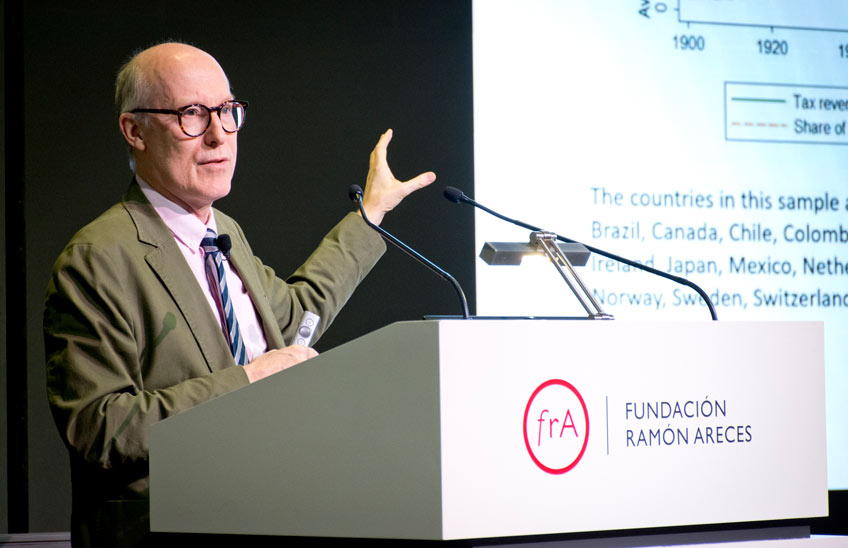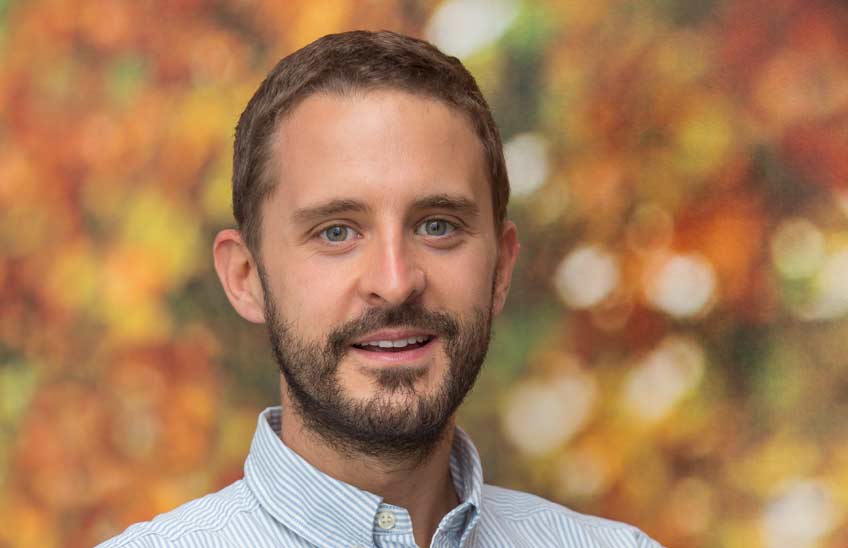Tim Besley: "Fighting climate change is compatible with economic growth".
Economist Tim Besley gave a lecture lecture at the Ramón Areces Foundation organized together with the Navarra Center for International Development (NCID) of the ICS and the Ramón Areces Foundation.

FotoFundación Ramón Areces<br>/El economista Tim Besley, profesor de la London School of Economics, durante la conferencia ofrecida en Madrid.
26 | 11 | 2024
"Climate change, political polarization and insecurity represent obstacles core topic, but tackling them need not be incompatible with economic growth". lecture This was stated by Tim Besley, professor at the London School of Economics and Political Science, in a speech he gave at the Ramón Areces Foundation, organized with the Navarra Center for International Development (NCID) of the University of Navarra. Institute for Culture and Society (ICS) of the University of Navarra. "Governments can adopt measures that protect the environment and reduce inequalities, without sacrificing the development", insisted the former president of the International Economic Association between 2014 and 2017.
His lecture was degree scroll 'Effectiveness of the State, welfare and development'. In it he reviewed the major challenges that the most advanced democracies have to take on at this time: "Among the most important are the fight against climate change, adaptation to technological changes, new forms of economic and political insecurity and the management of open borders. In addition, governments must guarantee adequate levels of social services in health and Education, aligned with citizens' expectations".
This economist specialized in Economics of development, Economics Public and Economics Politics has referred to the instruments available to the authorities to address these challenges: "States have important tools, such as regulatory frameworks to protect rights, fiscal policies to finance public services and legal systems that ensure the rule of law and individual freedoms. However, solutions need to be specific and adapted to the circumstances of each country.
Asked whether the time has come to innovate institutionally, Besley responded that "a discussion arises as to whether it is necessary to renew the capacities of the State or to create independent institutions that can address these challenges in a technical and objective manner". And he has given as an example of this climate councils or economic commissions that could assume a central role in the formulation of this subject of policies. "There are concrete cases of effective public policies that have improved the welfare of citizens and promoted economic development . These include building effective support systems for old age, infrastructure, health care and Education; legal and regulatory institutions that strengthen the rule of law while promoting personal freedoms; and comprehensive and progressive tax systems that finance these initiatives and ensure fiscal sustainability," he concluded.



